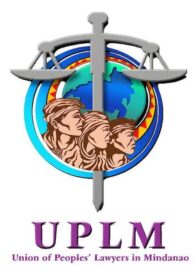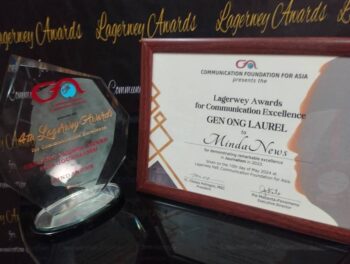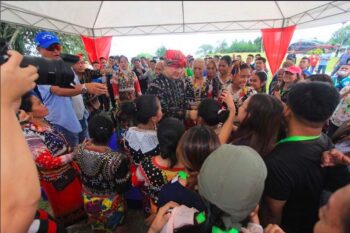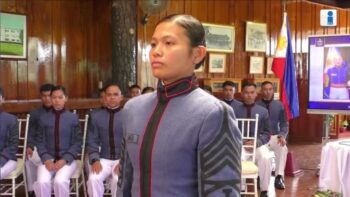MELBOURNE, Australia (MindaNews / 31 July) — In a previous piece, I wrote that the Bangsamoro Basic Law (BBL) was expected to be enacted by Congress before the next State of the Nation Address (SONA) of President Aquino.
Unfortunately, I was wrong. The President delivered his second-to-the-last SONA last July 28 and the only mention he made about the anticipated BBL was a plea for patience, a brief one at that.
Expectedly, everyone in Mindanao, particularly the hopeful souls from the Moro Islamic Liberation Front (MILF), were extremely disappointed at the meager attention given to the BBL.
The underlying message I get from this picture is that in the overall scheme of things, such as the state of the Philippine nation, the BBL is just one of the many problems Filipinos are burdened with. Indeed, poverty and underdevelopment are deep concerns not unique to Filipino Muslims. Nevertheless, the surprising bare treatment of the BBL in the SONA could have adverse ramifications on the fragile peace currently felt in Muslim Mindanao.
The question that needs to be asked therefore is whether peace in Muslim Mindanao should even be contingent on the enactment of the BBL? If we answer in the affirmative, the implication is that peace is ultimately in the hands of people outside of the Filipino Muslim community. I think this is an untenable proposition because the people in the affected areas deserve to have a direct hand in the peace-building effort. Pursuant to this premise, I believe the pertinent stakeholders to the peace process can commence laying down the basic conditions for peace in Muslim Mindanao, such as those provided in the Annex on Normalization, even without the BBL.
For example, the decommissioning of the MILF and the redeployment of the Armed Forces should already be implemented as prescribed in the said Annex. Even the provision on the disbanding of private armed groups can be (or ought to be) carried out as soon as possible. Indeed, the de-militarization of conflict zones and the disarming of combatants are all basic conditions for peace-building and can all be done under the auspices of a duly executed and binding peace agreement.
Even the provisions for the return of IDPs (internally displaced persons) and the restoration of communities affected by the armed conflict can be executed now so that the socio-psychological healing can already begin. I would argue that for these actions to get done, no Congressional imprimatur is needed. And doing so becomes all the more plausible given that NGOs and civil society groups in Mindanao are ready and willing to give the necessary support for this vital effort.
More importantly, I believe the Transitional Justice and Reconciliation Commission mentioned in the Annex could be organized by executive fiat alone and that this office should be working now because transitional justice is an indispensable requirement for any peace-building effort. I am not contemplating here a body akin to the Philippine Truth Commission created by the President last 2010 to pursue reported cases of graft and corruption during the term of President Gloria Macapagal-Arroyo. This office was subsequently demolished by the Supreme Court for violating the equal protection clause in the Constitution. The inspiration I propose for this truth commission conceived in the Annex would be The National Commission for Truth and Reconciliation of Chile—organized in 1991 by then President Patricio Aylwin to investigate human rights abuses committed during the years of military rule of Augusto Pinochet. Pertinently, the product of this commission, The Rettig Report, is still the gold standard for advocates of transitional justice.
Indeed, I think the President could rightfully acknowledge the legitimate grievances of Muslim Filipinos arising from the unjust dispossession of their territorial and proprietary rights and their consequent marginalization in the Philippine polity even before the anticipated enactment of the BBL. I daresay, had the President elaborated on this point in his SONA, he would have firmly ensconced the foundation for peace in Mindanao.
Of course, the importance of reconfiguring Muslim autonomy in Mindanao should not be taken for granted. Both the government and the MILF are right that the current regime embodied in the Autonomous Region in Muslim Mindanao (ARMM) is not tenable. A complete overhaul of the present structure is absolutely necessary and the provisions in the Comprehensive Agreement on the Bangsamoro (CAB) in this regard seem to be moving this project towards the right direction.
But I believe the task of incorporating these reforms would be better undertaken separately from the establishment of the basic conditions for peace mentioned above. The former is a highly political undertaking whilst the latter should have no politics involved at all.
Indeed, I think the revamp of the current regional autonomy regime is better viewed as a repeal of the ARMM law and therefore, a legislative enterprise. Correspondingly, it would be more strategic to involve lawmakers at the drafting stage. Employing experts on local autonomy law would likely be big boost as well. Therefore, I suggest the President immediately endorse authorship of the BBL to the pertinent Congressional committee and likewise ensure that Representatives from Muslim Mindanao have a direct and active participation in the crafting of this piece of legislation. This suggested move is not only about transparency and expediency but also about respecting the Constitutional principle of separation of powers.
In sum, given that both sides to this conflict claim the existence of mutual trust, I submit that both the government and the MILF can commence without any further delay, the appropriate steps to de-militarize the conflict areas and to initiate normalization operations. Indeed, the President (with the relevant local officials in tow) and the MILF, in collaboration with the Muslim community itself, can now begin the groundwork for peace-building even without the BBL. (MindaViews is the opinion section of MindaNews. PeaceTalk is open to anyone who wants to contribute his/her share to peace building in Mindanao. Atty. Michael Henry Ll. Yusingco is a practicing lawyer. He is presently completing a Masters of Law and Development in Melbourne Law School. He recently published a book entitled, Rethinking the Bangsamoro Perspective)







